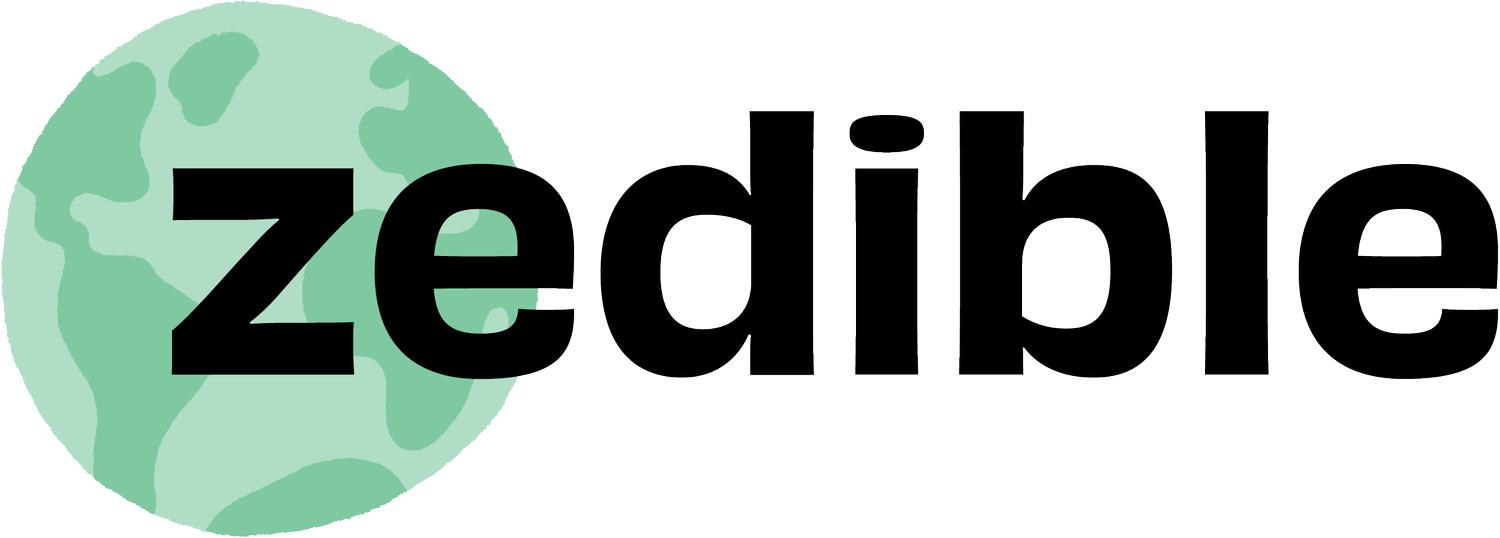How Zedible Can Help NHS Trusts Write Their Green Plan
The NHS has set ambitious goals for achieving net zero, with food and nutrition identified as one of nine priority areas for reducing carbon emissions. Food accounts for 6% of the NHS's total carbon footprint, translating to approximately 1.5 million tonnes of CO2e annually. Tackling these emissions is essential for creating a comprehensive and impactful Green Plan. This is where Zedible becomes an invaluable partner.
Zedible provides a cutting-edge platform designed to track and manage carbon emissions originating from food and drink supply chains, specifically addressing Scope 3 Category 1 emissions (purchased goods and services). Using data-driven insights, Zedible empowers NHS trusts to quantify, analyze, and reduce their food-related carbon footprints.
Why Food and Nutrition Matter in the NHS Green Plan
Food and drink supply chains contribute significantly to global greenhouse gas emissions, accounting for 26% globally. Within the NHS, food emissions alone are equivalent to almost 50 million ambulance journeys annually. Reducing these emissions doesn’t require capital investments or significant operational changes, making it an accessible and high-impact area for immediate action.
For NHS trusts drafting their Green Plan, addressing food emissions is a crucial step in meeting sustainability targets. The Zedible platform simplifies this process by providing a clear roadmap from data collection to actionable changes.
How Zedible Supports NHS Green Plans
Zedible's approach focuses on three core steps:
1. Dashboarding the CO2
Zedible’s platform creates an intuitive dashboard that maps CO2 emissions from food and drink purchasing. By using weight-based analysis rather than spend-based, Zedible ensures precise calculations that reflect the true environmental impact.
Example from Case Study:
An NHS trust analyzed 12 months of food and drink purchasing data, revealing total CO2 emissions of 1,975 tonnes. This was equivalent to 63,088 ambulance trips, providing meaningful context to engage stakeholders and prioritize changes.
2. Understanding Materiality
Zedible enables trusts to identify which products and categories contribute most significantly to their carbon footprint. This helps prioritize high-impact areas for intervention.
Example from Case Study:
The trust’s data revealed a carbon intensity of 1.43kg CO2e per £1 spent on food and drink ingredients. With this insight, decision-makers could pinpoint areas for improvement, focusing resources where they would have the greatest effect.
3. Modeling Substitutions
Using Zedible, NHS trusts can explore the impact of substituting high-carbon products with lower-carbon alternatives. This provides a clear understanding of the potential benefits before implementing changes.
Example from Case Study:
By modeling five product substitutions from a list of 300 regularly purchased items, the trust achieved:
27% reduction in CO2 emissions (590 tonnes averted).
2.5% reduction in cost of sale (COS), saving £34,725 annually.
This dual benefit of cost savings and carbon reduction makes Zedible an ideal tool for meeting Green Plan objectives.
Zedible and Scope 3 Category 1 Emissions
The NHS’s net zero goals place significant emphasis on Scope 3 emissions, particularly Category 1 (purchased goods and services). Food supply chains fall squarely within this scope, making them a critical area for improvement.
Why Zedible Excels in Addressing Scope 3 Emissions:
Granular Data Analysis: Tracks emissions at the SKU level for precise insights.
Real-Time Insights: Provides monthly updates to monitor progress and adjust strategies.
Easy Integration: Uses existing procurement data, requiring no additional infrastructure.
Scalable Solutions: Applicable across trusts, catering to various sizes and purchasing patterns.
By integrating Zedible into their Green Plan strategies, trusts can meet Scope 3 emission reduction targets effectively and efficiently.
The Financial and Environmental Case
NHS trusts face tight budgets and increasing pressures to meet sustainability targets. Zedible delivers solutions that align financial efficiency with environmental impact.
Key Benefits for Trusts Using Zedible:
Cost Savings: The case study demonstrated a 2.5% reduction in COS, equating to thousands in annual savings.
Carbon Reduction: Product substitutions achieved a 27% reduction in CO2 emissions, directly supporting net zero goals.
No Capital Investment: Unlike other sustainability initiatives, addressing food emissions requires minimal operational coordination or upfront costs.
Supporting Trusts in Writing Their Green Plan
Drafting a Green Plan requires actionable insights, stakeholder engagement, and measurable outcomes. Zedible supports this process by providing:
Baseline Emissions Data: A clear starting point for understanding current impacts.
Scenario Modeling: Tools to evaluate potential interventions and their outcomes.
Reporting and Compliance: Transparent data to support Green Plan documentation and reporting.
Ongoing Monitoring: Monthly updates to track progress and adjust strategies.
For example, trusts can use Zedible’s data to set measurable goals, such as reducing food-related carbon emissions by 20% within three years or achieving a 10% reduction in carbon intensity per £ spent.
Conclusion
Food and nutrition play a pivotal role in the NHS’s journey to net zero. By addressing Scope 3 Category 1 emissions, trusts can make meaningful progress toward sustainability while optimizing costs. Zedible offers a powerful, data-driven solution that simplifies the process of quantifying, understanding, and reducing food-related carbon footprints.
For NHS trusts preparing their Green Plans, Zedible provides the tools and insights needed to align operational practices with sustainability goals. The case study results speak for themselves—significant cost savings, measurable carbon reductions, and actionable strategies that make a real difference.
Ready to take the next step?
Learn more about how Zedible can support your NHS trust in achieving its sustainability goals by visiting Zedible.io.
